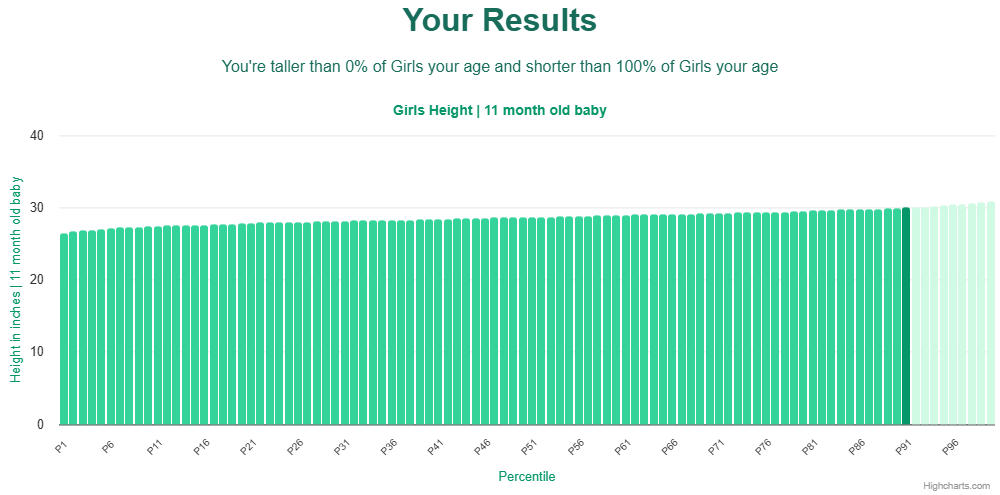Girls Weight chart in lbs for babies 11 month old baby

General Summary: 11 month old baby girls weight
In most cases, weight measurements for 11 month old baby girls will be in the range between 15 and 24 lbs. The average weight for 11 month old baby girls is 19 lbs, according to the CDC and anonymized data from users.
All Results
Enter your weight measurements above to see how they compare
So far, we have recorded [0] weight measurements for 11-month-old-baby girls on LifeMeasure!
(chart updates daily)
See more ages